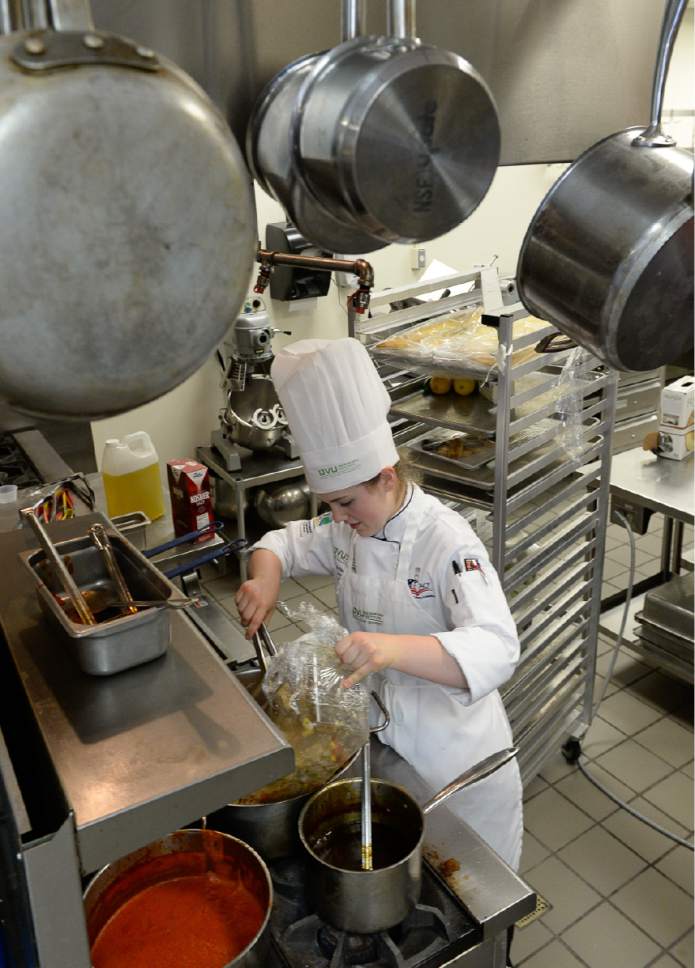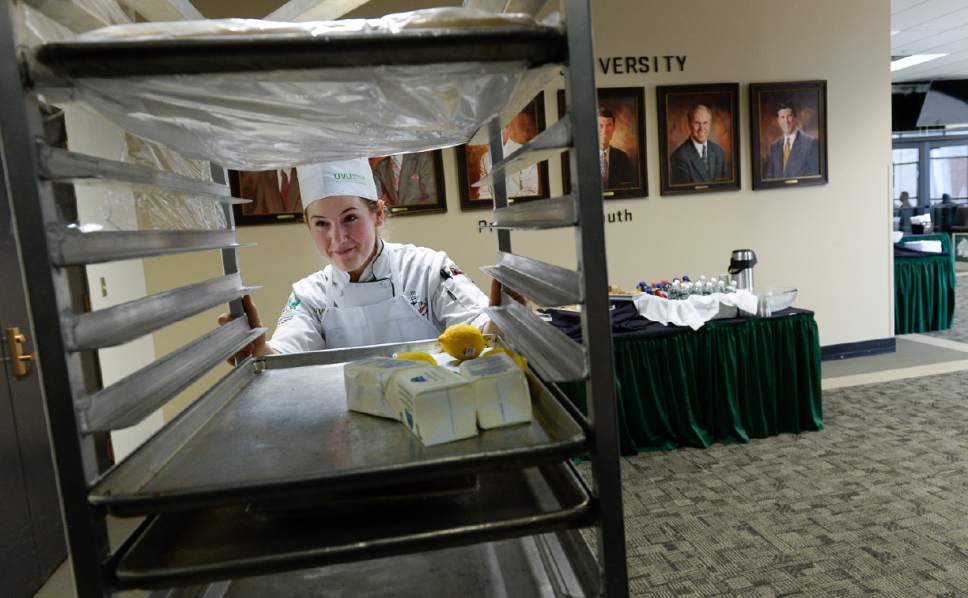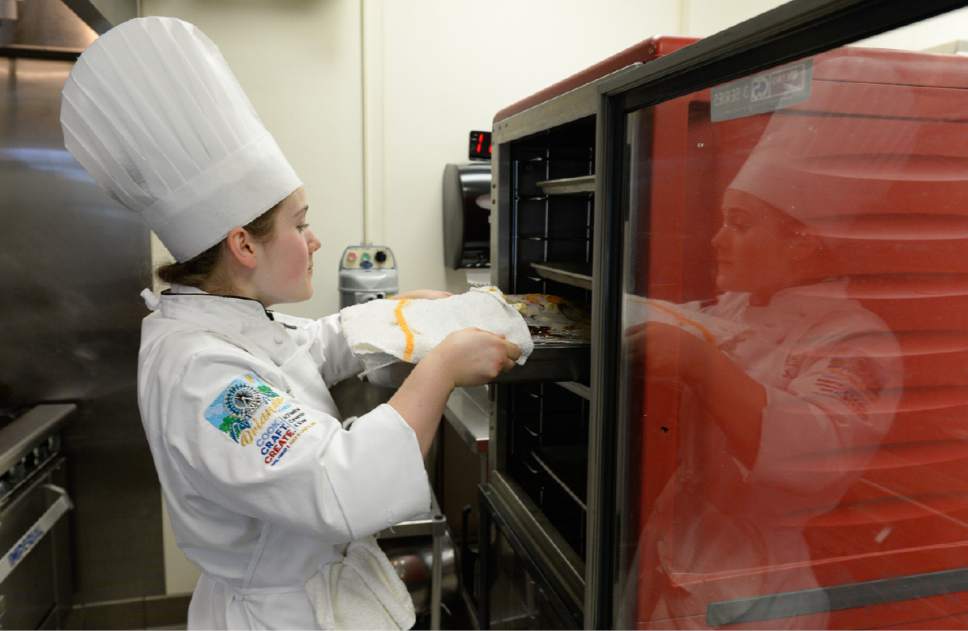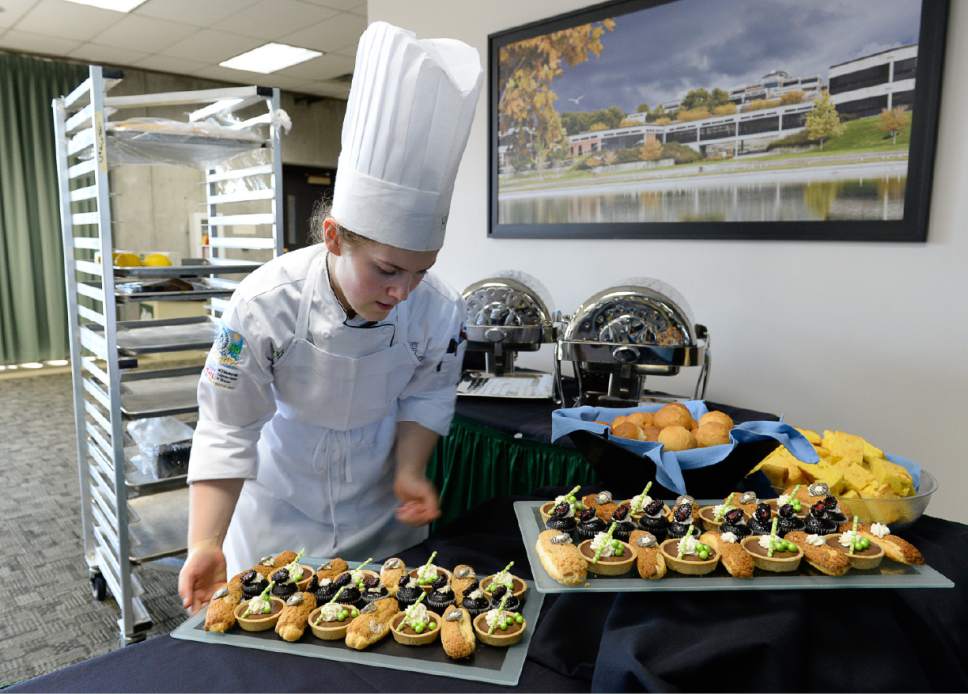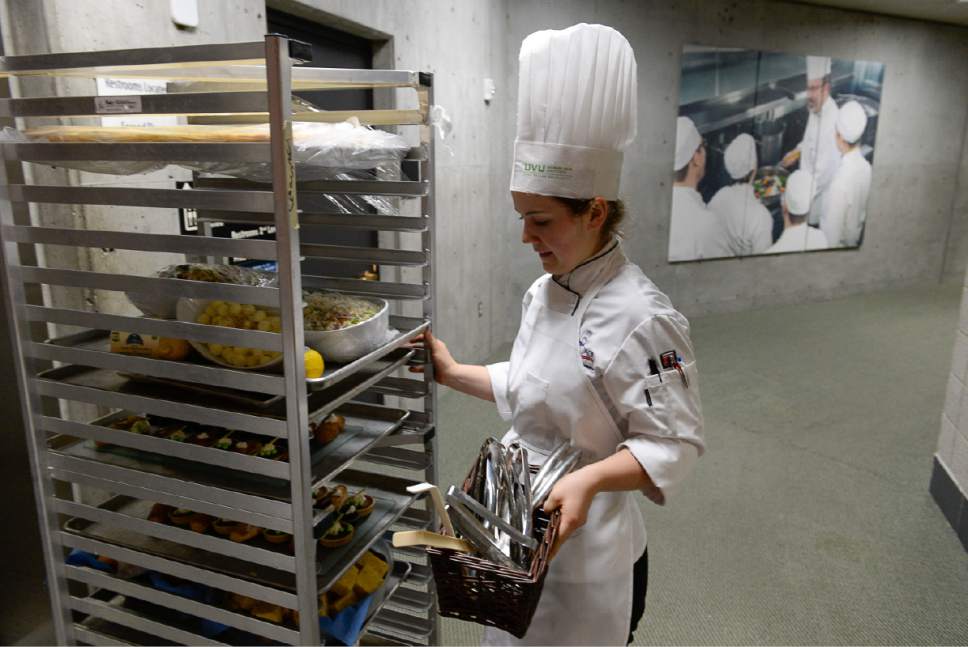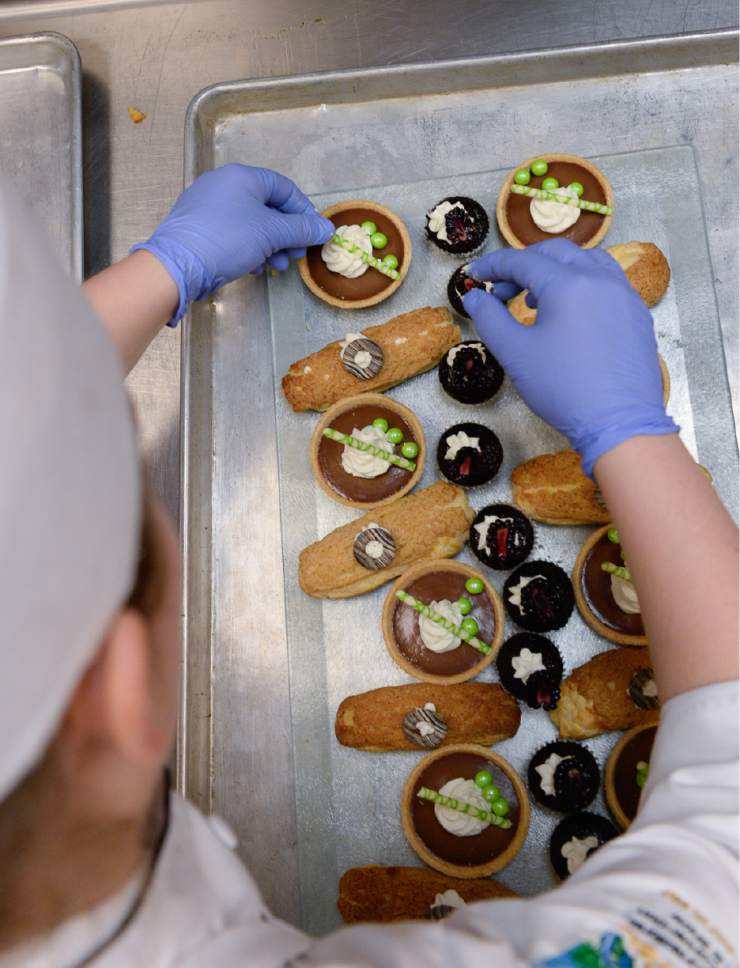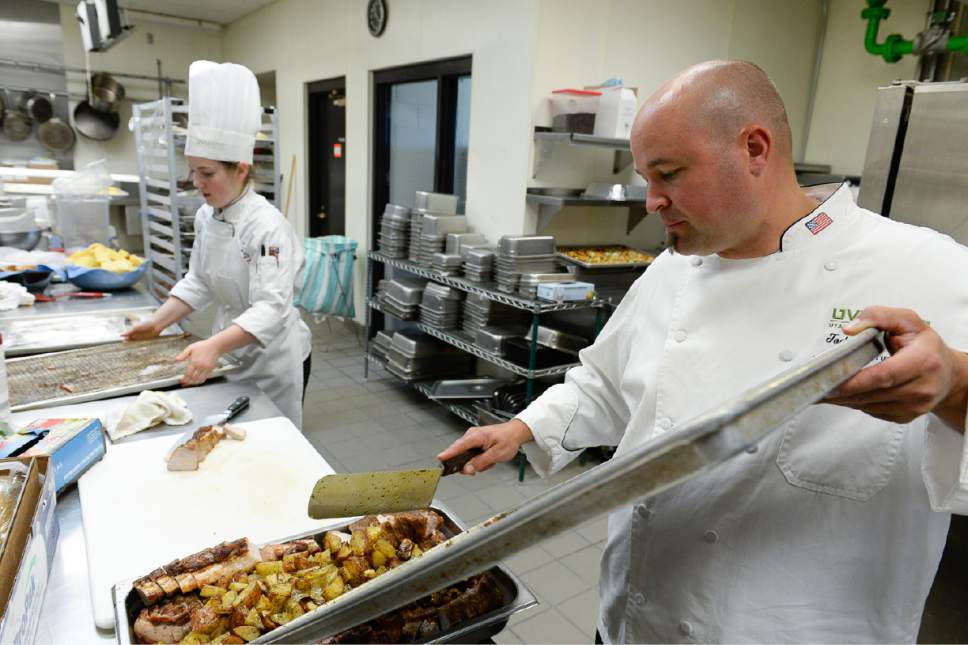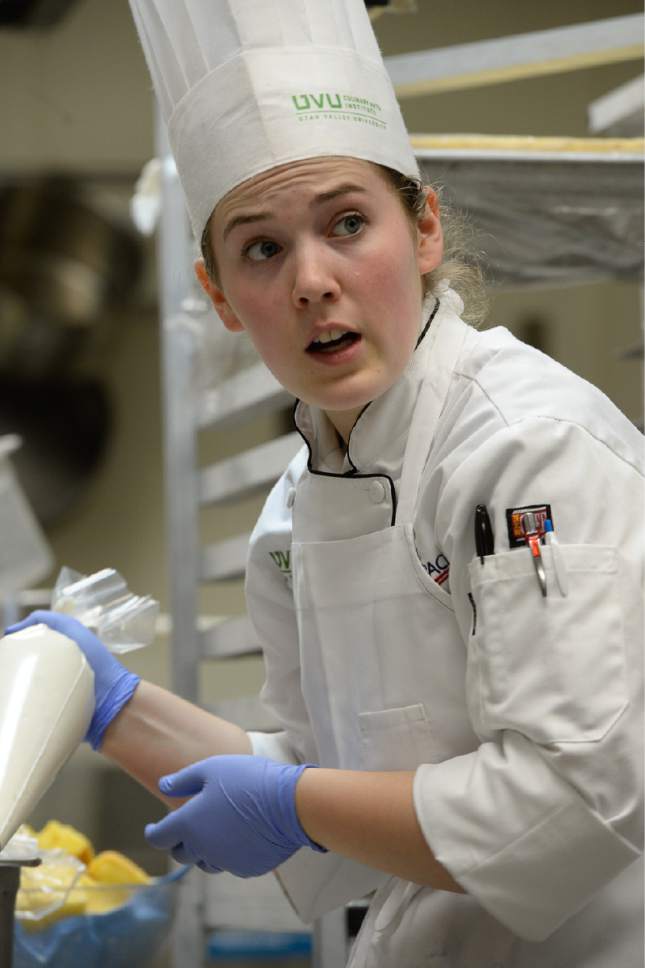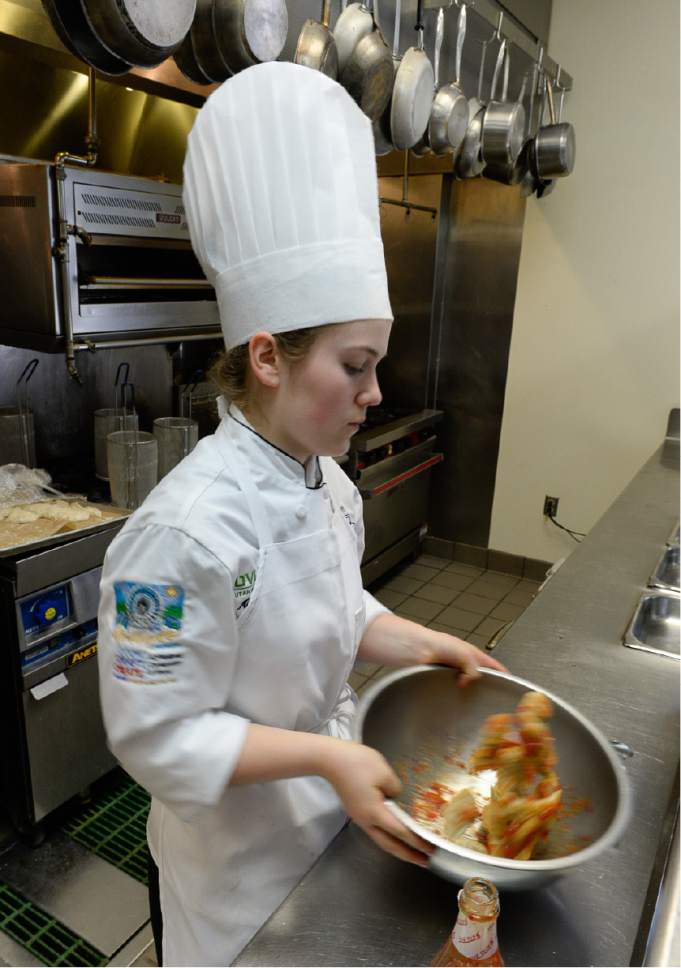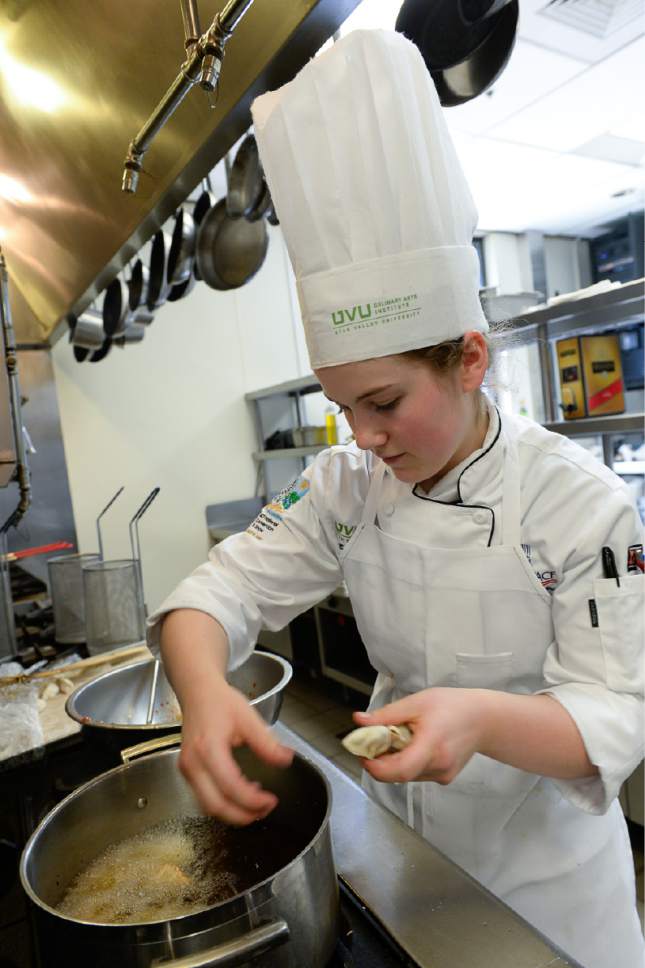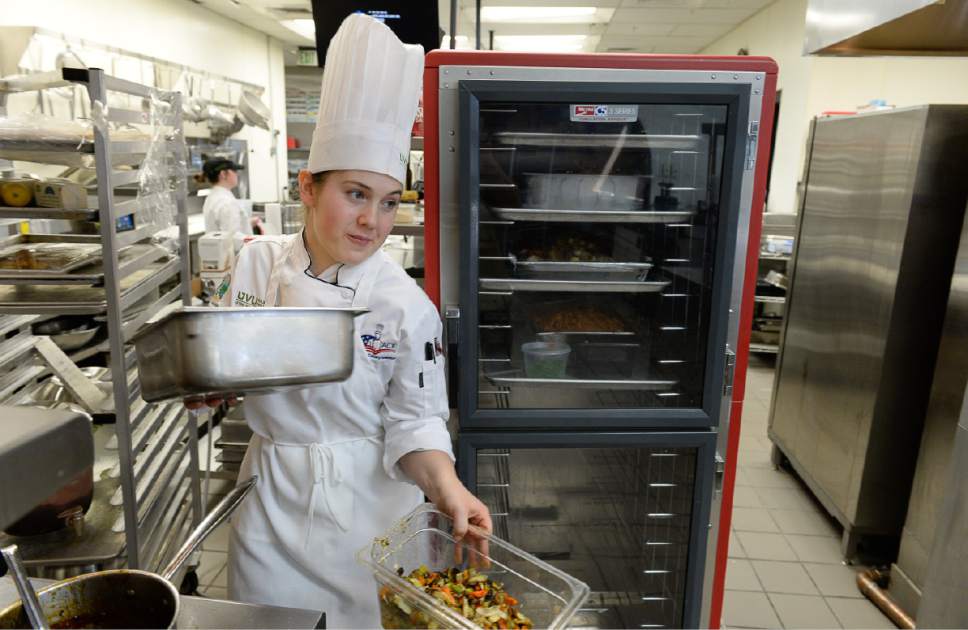This is an archived article that was published on sltrib.com in 2017, and information in the article may be outdated. It is provided only for personal research purposes and may not be reprinted.
Madeline Black peered into the oven to see her potatoes gratin simmering golden brown.
And while other chefs might have smiled or patted themselves on the back, that moment filled Black with anxiety, over what could have been a huge miscalculation. The kitchen timer showed that her slightly crunchy and creamy dish — meant as a complement to duck in a meticulously crafted meal — had reached perfection 10 minutes ahead of schedule.
Though flustered, the 19-year-old Utah Valley University student recovered and pressed on through remaining minutes of the American Culinary Federation's student-chef competition, held two weeks ago in Orlando. The Utahn won as a national champion, becoming the second student at UVU's Culinary Arts Institute to do so in as many years.
Those last minutes, Black said, "got a little crazy."
"I had actually thought that I didn't have a chance of winning as soon as I was done because of the few items that I felt weren't perfect," she said in an interview. "But they didn't have much negative to say, and that was pretty amazing to hear."
For culinary students, competing for the American Culinary Federation is akin to athletes reaching an NCAA championship. The federation is among the largest in North America. In addition to competitions, it offers educational and training programs, national and regional events and operates a robust certification program for U.S. chefs.
Black, a Provo native, grew up helping her mother in the kitchen and entered high school cooking contests before pursuing applied science in UVU's culinary arts associate degree program. She eventually hopes to land a bachelor's degree in hospitality management.
She represented UVU at a series of regional American Culinary Federation contests, then went up against other regional winners to become one of five competitors to cook for the national Student Chef of the Year title at the group's annual convention.
This year's finalists had 90 minutes to cook and serve four identical meals featuring duck as the protein, with results judged by four award-winning chefs.
Black's menu featured truffle-scented duck roulade; Utah honey-lacquered duck-thigh riblet and pan seared foie gras with potatoes gratin; celeriac and pea puree finished with a rhubarb chutney; and summer vegetables.
Chef Michael Beriau, one of the contest's judges, said it requires chefs to be fearless and enthusiastic — qualities he said Black exuded during the competition.
"When you are in the kitchen, you can reflect your passion in your cooking and you can tell if [the students] are having fun being in there," said Beriau, who added that Black and her closest competitor "were totally focused and at the top of their game, and it showed through the whole competition."
After winning the federation's Western regional competition, Black and her professor-turned-mentor Todd Leonard worked tirelessly to craft her menu for the national contest. They spent 2½ months in the UVU Culinary Arts Institute kitchens working five days a week on flavor profiles, plate presentation, menu writing, texture combinations and timing.
Black received her first-place gold medal in a banquet appearance before more than a thousand of America's top chefs, who responded with a standing ovation.
Black, who is now entering her second year at UVU, called the win "a dream come true." She said if anyone had asked her a year ago about winning Student Chef of the Year, she would not have believed it possible.
There is also surprise in UVU's culinary program, especially after another student, Michelle Stephenson, won the same title last year, a first in the school's history.
According to Leonard, who is department chairman over the program, the back-to-back victories "just put UVU on the culinary map to stay."
"Nobody expected UVU to do what we have done," he said.
Now in its 26th year, the UVU program is looking to add a baking- and pastry-focused degree as well as a culinary management track in the next few years, Leonard said — potentially doubling its current enrollment of about 100 students.
"The future is bright," he said. "The progress is going to keep going and will only take off."
Twitter: @kelgiffo


